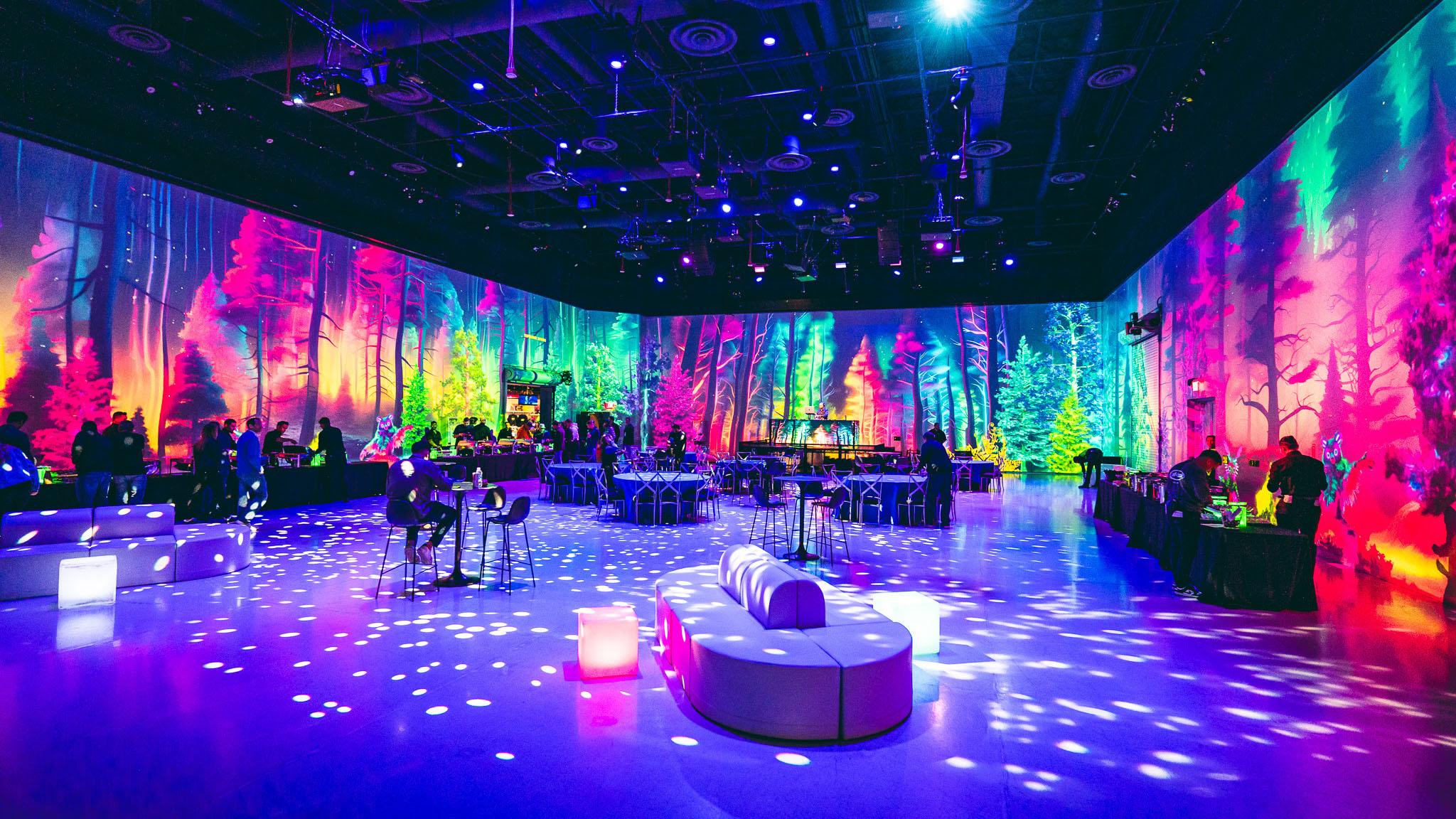
Bigger is always better in Las Vegas. From the Vegas Sphere to the bright lights of Miracle Mile, the Vegas Strip seems to always be outdoing itself. AREA15 is doing just that with the help of HOLOPLOT—the company behind the Sphere's immersive audio.
Not to be confused with Area 51, AREA15 is an immersive entertainment district just moments from the Las Vegas Strip. It has Meow Wolf's Omega Mart and the Illuminarium, which was already using HOLOPLOT's X1 system. Now following suit in upgrading their audio experience with a HOLOPLOT X1 Matrix Array sound system is The Portal, a multi-use venue and key element of AREA15’s experiential entertainment. It offers experiences for the whole family, including rides and VR, live performances, DJs, fantastic food, and definitely no top-secret U.S. government experiments.
[We Checked out the Omega Mart During InfoComm... and Had Our Minds Blown]
“Our motto is ‘AREA15 does not exist’ because you can make your own story,” said Mark Stutzman, CTO at AREA15. “It can be anything you want it to be.”
The Portal is AREA15’s landmark venue. It can be used for private dining, all-night DJ sets, and everything in between. At Halloween, for example, the Rocky Horror Picture Show is projection-mapped on all four walls of the venue and supported by live actors, but it has also been home to fine art shows and corporate events.
Here, the flexibility of the newly installed HOLOPLOT X1 system, which consists of two arrays of two MD96 Audio Modules, topped with two MD80-S, positioned left and right at a height of 25 feet at one end of the room, ensures the space can fulfil the creative ambition of the AREA15 team—to be transformative. Technically there are no limits to the endless possibilities of this space, and for director of production JD Bouck, that is the beauty of working there.
[SCN Finally Goes Inside the Vegas Sphere ... and We Had a Ball]
The Portal is a vast grey concrete cuboid, allowing a 360-degree projection map across the walls and floor. The visual elements were always stunning, but Bouck found that the original sound system was never able to keep up, owing to acoustics akin to a giant fish tank and highly reflective, smooth walls.
“The Portal was one of the biggest concerns we had,” he said. “It is a 7,000 square foot, completely blank canvas. Thanks to our Panasonic projectors, we can make visual landscapes and have great storytelling for the eyes, but the audio picture was never able to complement these.”
In the exploration phase for a new sound system, Bouck and his team began to run into issues. "The Portal is not built like any other real venue that I've ever been to,” he explained. “There is nothing to soften it, no balcony or mezzanine, just hard surfaces. So there was never a product that checked all the boxes.
“It was the reflective surfaces that we were really trying to tackle with the HOLOPLOT system,” he continued. “The 3D audio-beamforming technology allowed us to focus so that we could cut the reflections off the walls and make sure the people at the back of the room were getting the same audio picture as the people at the front of the room. All without having to run a ton of delays or having a bunch of loudspeakers in front of the projection surfaces.”
The HOLOPLOT team supported Bouck throughout the whole process, from system planning to providing room calculations until final commissioning and tuning.
"We finally got X1 into the venue and on the first night we just wanted to fire it up and see what happened, even before we had fine-tuned it,” Bouck said. “Straight away, it was like the weight had just been lifted off our shoulders. The Matrix Arrays sounded like a huge distributed system, like everyone had their own little PA, whether they were standing against the wall, or in the middle of the room. It didn't matter where they were, their audio experience was not diminished in any position."
[How a Church's New Sensory Experience Immerses Visitors]
The new system has received excellent feedback. Regular visitors have noticed the positive change, but it’s not just the audience members who have benefitted; there have been healthy changes for the staff, too.
“Loud isn't always good. Good is good!” Stutzman concluded. “We now have great audio quality without it having to scream in your face. The HOLOPLOT team really worked with us, listening to our ideas and taking it all into consideration. Our DJ shows can be up to five or six hours long. The guests can come and go, but the staff—our technicians, security, and bartenders—are here all night, and we have a duty of care to them, to ensure they're comfortable. We didn't want the ear fatigue you usually get from really loud festivals. So now we have a system that is really super versatile, allowing us to adapt the audio for any event without the need to reconfigure the hardware, but always provides that top audio experience to match the visuals in the space.”





